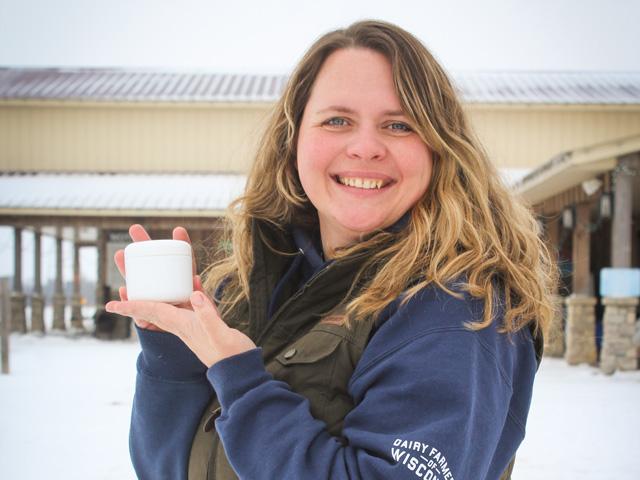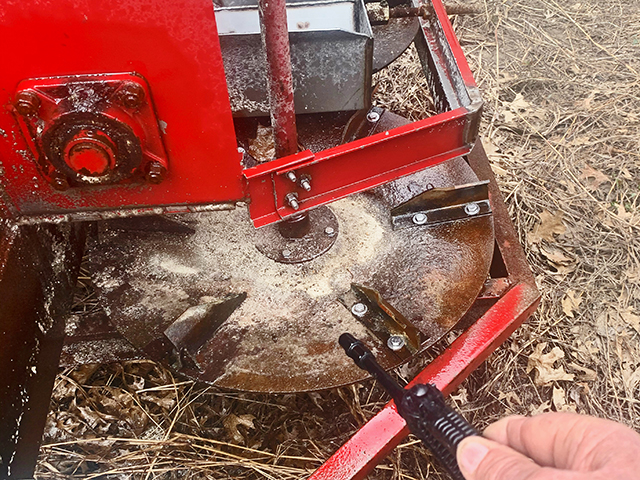Ask the Mechanic
Beat the Rust
READER: I have trouble with fertilizer ruining the spreaders on our farm. It causes everything to rust and, in some cases, rust away. It does not matter whether it is liquid fertilizer, dry fertilizer, small spreader for the yard or large spreader that holds tons of fertilizer for the fields, it ruins everything that is not stainless steel, aluminum or titanium. I have two questions. First, why doesn't stainless steel rust? Second, what is the best way to help prevent rust when the spreaders are not in use?
STEVE: You are not alone in fighting rust around fertilizer. It can destroy an expensive fertilizer spreader if it is not maintained.
Many parts of a fertilizer spreader are made of stainless steel and aluminum. However, it is not possible to make everything out of stainless steel. Many times, the frame of the machine, belt sheaves, some chains, spreading spinners and other parts are steel. Some fertilizer spreader manufacturers offer more components made of stainless steel, but the cost is higher.
Oxygen and water cause rust on steel, but with the ammonium nitrate, by far the most destructive item added to the formula, rust forms quickly with the added acid from the fertilizer. Ammonium nitrate begins to absorb moisture when the humidity is only 60%, while certain phosphates will not begin to absorb moisture until the humidity is 90%.
Stainless steel is blended with nickel and chromium to help protect it from rusting, thus its name. Actually, stainless steel does rust, but a microscopic film forms and keeps out the oxygen (just like a good paint job on your car).
P[L1] D[0x0] M[300x250] OOP[F] ADUNIT[] T[]
Unlike paint, stainless steel has the ability to "heal" itself if scratched. Like your skin, it forms another protective film. Stainless steel is really a marvel that can be polished (like on a firetruck) to shine like a mirror.
However, it is not made for the novice welder to work on. Stainless steel is for the guy who has worn that cap with the short bill for a while.
Without the use of stainless steel or aluminum, the best way to protect mild steel is with a good paint job, but that does not work for very long.
Each time I finish with my fertilizer spreader, I wash it down with water, and after it dries, I spray a mix of 4-to-1 diesel fuel and motor oil over all steel parts, including the frame. This blend, plus greasing all fittings, seems to work well to seal off the oxygen from the steel.
CONTROL WINTER MOISTURE:
READER: I have a Kubota utility tractor that I feed with all winter long. It really starts great in cold weather, but the tractor really never runs long enough to get warm enough to help keep moisture out of the engine. I was wondering if I should change the oil more frequently since it usually only runs long enough to condense moisture from temperature differences?
STEVE: I really like the idea of keeping the oil changed more often during cold weather use for short periods of time. Your tractor feels the cold, too, and a diesel engine really likes to run at operating temperature. Engine heat helps with condensation. Short running time also produces more soot.
Since I live in Texas, after the extreme winter that we had this year, I can relate to cold weather feeding with a truck or tractor. We were not prepared for those subzero temperatures. The fuel here gelled because we only have No. 2 diesel, and what little diesel additive was available quickly sold out even before the cold weather arrived.
Hay and cubes at the feed store? Forget it, none was available. Propane trucks could not make deliveries on ice. Electricity? Either none was available or rolled more off than on. The plumbing didn't always fare well, either.
SAFETY TIP OF THE MONTH:
Never trust jacks on a piece of equipment to keep the implement tongue from falling when unhooking. It is common to place your feet under the tongue to get enough pull on the pin. We all know that sometimes the tongue will move off the tractor's drawbar when the pin comes out. Never trust a jack.
**
-- Write Steve Thompson at Ask The Mechanic, 2204 Lakeshore Dr., Suite 415, Birmingham, AL 35209, or email mechanic@progressivefarmer.com.
[PF_0521]
(c) Copyright 2021 DTN, LLC. All rights reserved.




